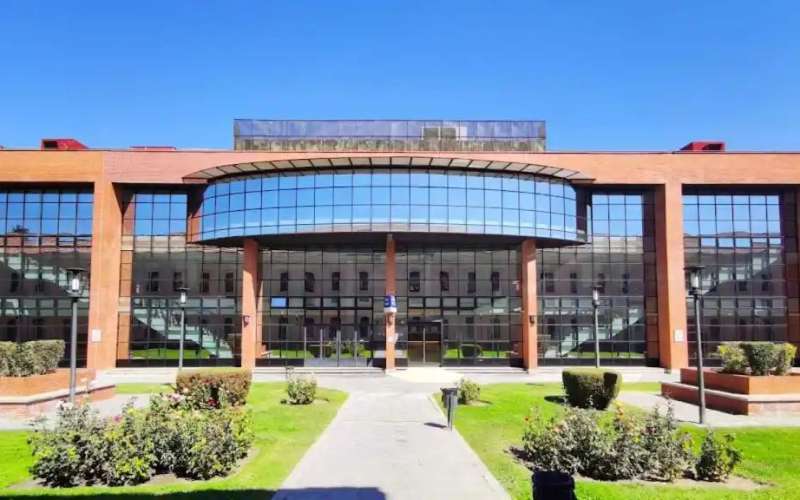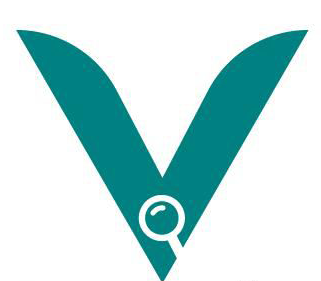SENSEBEAT-PhD: Pre-doctoral Position in Sensory and Body Perception in Depressive Disorders
Career Development
⦿Sep 30, 2024

Study of Sensory and Body Perception in Depressive Disorders using Wearable Technology and Machine Learning
Ref. SENSEBEAT-PhD: Pre-doctoral Position in Sensory and Body Perception in Depressive Disorders
The Universidad Carlos III de Madrid (UC3M) is currently recruiting candidates for a funded PhD studentship within the areas of Human Computer Interaction, Psychiatry, AI and Health Technologies , as part of the project "SENSEBEAT-DS: SENsory and Body perception EvAluaTion in Depressive Symptomatology”. The studentship is funded by the Spanish program for pre-doc contracts for the training of doctors, which offers a 4-year full-time contract, starting in the beginning of 2025. The appointee will join the i_mBODY lab, which is part of the DEI Interactive Systems Group and the UC3M PhD program in “Computer Science and Technology” at Universidad Carlos III de Madrid, Spain.
About the project:
The SENSEBEAT project investigates sensory patterns and body perception in depressive disorders. Sensory and body perception alterations significantly impact how individuals interact with their surroundings. In the context of depressive disorders, disruptions in signaling across sensory domains influence symptomatology, sensory-motor integration, and treatment responses. Our previous projects demonstrated that technology integrating sound-feedback on body movement alters body perceptions and related motor behavior and emotional state in various populations, including those with low physical activity levels, chronic pain, eating disorders, and chronic stroke. In our recent work we are exploring sensorydriven malleability in conjunction with interoceptive awareness and sensory-processing sensitivity, particularly in populations with eating disorders. We have also shown associations between feelings of depression and body sensations using bodily illusions, with promising applications in mental health interventions. In the pursuit of developing diagnostic tools and therapies, it is crucial to conduct research on alterations in sensory and body perception associated with depressive symptoms, as well as the impact of sensorial technology on these aspects across laboratory, clinical, and everyday settings.
The SENSEBEAT project hypothesizes that disturbances in sensory processing and body perception contribute to the pathophysiology of depressive disorders, offering potential avenues for intervention. It aims to investigate short-term and longitudinal correlations between sensory processing, body perception disturbances, and depressive symptoms. This involves profiling populations and assessing the malleability of sensory-driven body perceptions through wearable technology, along with smart devices utilized during follow-up periods. This 3-year inter- and multidisciplinary project focuses on refining wearable systems and multisensory stimulation, testing instruments and tailoring interventions in populations with depressive symptoms, and utilizing machine learning models for data collected in real-world settings.
SENSEBEAT brings together a multidisciplinary and international team involving the areas of Psychology, Cognitive Neuroscience, Human-Computer Interaction, Psychiatry, Data science, and real-life health applications. Researchers are from five European countries and eight academic groups in Spain (Universidad Carlos III de Madrid, Universidad de Santiago de Compostela, Universidad de Sevilla, Universidad de Zaragoza), UK (University College London Interaction Centre), France (Institut de Recherche et Coordination Acoustique/Musique), Switzerland (University Hospital of Psychiatry and Association of Independent Research) and Sweden (KTH). Leveraging extensive experience in sensorial assessment and implicit ecological assessments, the project aims to advance knowledge on sensory and body perception disturbances in major depression and guide the design of innovative body-centered technologies with the potential to revolutionize therapies and self-management practices of individuals with depressive symptoms. Environment: The successful candidate will enter the doctoral program in “Ciencia y Tecnología Informática” at UC3M (https://www.uc3m.es/master/ciencia-tecnologia-informatica), a program which has an important international projection. The candidate will be co-supervised by Dr Ana Tajadura-Jiménez at Universidad Carlos III de Madrid (https://imbodylab.com/ana-tajadura-jimenez/) and Dr Jorge López Castroman at Universidad de Santiago de Compostela (https://investigacion.usc.gal/investigadores/1202965/detalle). He/she will be based at the i_mBODY lab (www.imbodylab.com), Interactive System Laboratory (DEI; https://www.dei.inf.uc3m.es) at the Computer Science Department of UC3M and will also work in close collaboration with the Signal Theory & Communications (STC) Department at UC3M and other team member institutions. The supervisors will promote and facilitate the sustained interaction with the relevant expertise available within those groups and encourage the student participation at seminars and courses they organize. UC3M offers a range of courses available to PhD students and the student will also be encouraged to take part in courses outside UC3M that are relevant to the development of the thesis or to building a scientific profile. Candidates will have access to the facilities of the Computer Science & Engineering (CS) and the Signal Theory & Communications (STC) Departments at UC3M for the development of the research activities, including on-site access to research facilities for human behavioral testing at the DEI Interactive Systems Lab (UC3M), as well as researchdedicated equipment (sensory stimulation equipment, a large catalogue of audio-equipment for recording and delivering sound, motion-capture, electrophysiological acquisition, everyday tracking with apps, etc). UC3M will provide digital fabrication tools for prototyping wearable sensing devices (3D printer, laser cutter, soldering, sewing, soft materials).
The DEI Lab can provide different types of sensory equipment (audio, haptic stimulation, soft robotics) and body tracking. Job Description: The tasks of the successful applicant will involve designing/refining/building wearable prototypes integrating bodytracking and sensory feedback through workshops with users and stakeholders, experimental studies with users, including people with depressive symptoms. It is expected that this research will advance knowledge on sensory and body perception disturbances in major depression and guide the design of innovative body-centered technologies with the potential to revolutionize therapies and self-management practices of individuals with depressive symptoms.
Some specific responsibilities that this position involves include:
● Conduct literature reviews of the state-of-the art of the project research area.
● Design and conduct experimental studies using a variety of HCI, psychophysical, psychophysiological and qualitative methods.
● Data analyses and modelling, using a variety of HCI, cognitive neuroscience and machine learning methods.
● Work directly with volunteers/users/patients in the lab and outside the lab in real-life contexts (e.g. home or in a medical center).
● Recruitment of volunteers for research studies. Communicate with user centers, clinics/ therapists, potential patient recruitment.
● Participate in building the setups and prototypes for the experimental studies.
● Report results at conferences and international peer-reviewed journals.
● Archive research data and publications.
● Participation in the group meetings.
● Participation in the organization of different outreach activities, such as school science exhibitions, public exhibitions, seminars and workshops.
Qualifications:
● A Bachelor's degree (or equivalent) and a Master's degree (or equivalent) in the area of Computer Engineering or related areas (e.g. Human-Computer Interaction, Software Engineering, Computer Science, Telecommunication Engineering). Individuals without a degree or MSc in Computer Engineering (or a related field) but with a degree and MSc in areas related to the project (e.g. Cognitive Neuroscience) AND demonstrated experience in the field of Computer Engineering are encouraged to contact me for consideration.
● Be eligible to be admitted to the UC3M Computer Science and Technology PhD program: https://www.uc3m.es/phdprogram/computer-science-technology#access
● Applicants should not hold a PhD degree or have had a pre-doctoral contract for more than 12 months.
● Programming experience (e.g., Matlab, R);
● Excellent verbal and written communication skills in English;
● Verbal and written communication skills in Spanish;
● Excellent organization skills;
● Able to work independently and as part of a collaborative research team.
● Independent, decisive, imaginative, approachable and supportive.
Plus:
● Proven research experience, specially in areas relevant to the research project;
● Proven research experience with human volunteers/users;
● Experience working as part of a team;
● Knowledge of statistics;
● Strong interpersonal skills to work effectively as part of a highly collaborative research team, and to perform studies with volunteers in research studies, as well as to build and maintain relationships with academics and collaborating instructions representing user groups.
● Pro-active personality, detail focused.
What we offer:
● The contract will be published in the BOE (Official State Gazette) with the necessary requirements to apply. The contract is intended for the completion of a doctoral thesis and will have a duration of 1 year, extendable up to 4 years, provided the corresponding annual evaluations are successfully passed.
● Remuneration: the 2023 call established that for the first year, it would be 60% of the salary set in the EPIF, and 75% for the second, third, and fourth years. In 2023, the amounts were 1,623.30 euros monthly for the first year (with prorated extra payments) and 2,029.10 euros for the remaining years (with prorated extra payments). These amounts are usually updated annually.
● Start date: Beginning of 2025.
● Possibility to obtain an international PhD degree, with research stay(s) at collaborating international labs.
● The position includes ad hoc training in specific research skills and career development initiatives.
● Become part of a young, dynamic, highly qualified, collaborative team.
● Opportunity to travel to international venues to present research activities. ● Health coverage under the National Health System.
Information Enquiries can be made to Dr. Ana Tajadura-Jiménez, email: atajadur@inf.uc3m.es, or Dr. López Castroman, email: jorge.lopez.castroman@usc.es.
Please use the following subject in your email: “SENSEBEAT_PhD_family name of the applicant”. How to apply: The application involves a two -step process. Interested candidates need to:
1. Apply for the position at UC3M job portal (https://shorturl.at/lD9Ix) before October the 10th 2024.
2. Interested candidates are strongly encouraged to send the following application package in English in a single PDF file to atajadur@inf.uc3m.es and jorge.lopez.castroman@usc.es with the following subject: “SENSEBEAT_PhD_family name of the applicant” before October the 13th 2024.
1. CV (up to 5 pages) Include here any experience in Research, Industry, Science communication, Science management, and any research publications.
2. A list of 3 highlights of your CV.
3. A letter of interest (up to 1 page), explaining why you want to join SENSEBEAT and what are your expectations; highlight your strong points.
4. Up to 2 references (with contact details and email), that can provide you with a recommendation letter if further required in the process.
All candidates will have feedback with a message as proof of delivery. Top candidates will be invited to an individual online interview organized by UC3M. The final decision criteria will be based on merits (70%) and interview (30%). In addition to this, the selected applicant will need to follow the necessary requirements for the PhD contract as published in the BOE (Official State Gazette), as well as to apply for admission in the UC3M PhD program when indicated to do so. Brief description of the institution: Universidad Carlos III de Madrid (UC3M) is a state public university established in 1989. Its main goal is providing specialized training in Engineering, Law and Social Sciences, Humanities, Communication and Library Science; and becoming a leading European research center. Research is a fundamental pillar of UC3M, which strives to attract talent and create new research areas. The UC3M is among the top Spanish universities for their participation in European level R&D&I programmes.
The University has five centers: 2 Faculties, 1 Technical School, 1 School of Graduate Studies and 1 Doctoral School within 4 Campuses. UC3M is divided in 28 Academic Departments, 28 University Research Institutes and 133 Research Groups. UC3M has 22.600 students, over 1200 doctoral students and near 2000 Faculty. The Universidad Carlos III de Madrid hires on the basis of merit and is strongly committed to equity and diversity within its community. All qualified applicants are encouraged to apply, they will receive consideration for employment without regard to race, color, religion, sex, sexual orientation, gender identity, national origin, disability status, protected veteran status, or any other characteristic protected by law. Note that if the successful applicant is neither a European citizen nor a permanent resident of Europe, he or she must be issued a work permit prior to commencing the position.
- Share This Job

Write A Comment
No Comments